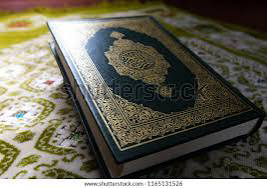islam holy book..
The Quran:
Introduction
The Quran, the holy book of Islam, holds a central position in the faith and practice of Muslims worldwide. Revered as the literal word of God as revealed to the Prophet Muhammad, the Quran serves as a guide for personal conduct, moral principles, and spiritual enlightenment. In this exploration, we delve into the origins, structure, themes, and significance of the Quran in the lives of Muslims.
f
The Revelation of the Quran
The Quranic revelations began in the year 610 CE when the Angel Gabriel appeared to the Prophet Muhammad in the cave of Hira near Mecca. Over a period of approximately 23 years, these revelations were conveyed to the Prophet, who recited them to his companions and scribes. The revelations were in Arabic, the language of the people of Mecca, and were memorized and written down by the early Muslim community.
The Structure of the Quran
The Quran is divided into 114 chapters called surahs, which vary in length and cover a wide range of topics. Each surah is further divided into verses called ayahs, which serve as the fundamental units of the text. The arrangement of the surahs is not chronological but based on themes and topics, with the longest surahs at the beginning and the shortest at the end.
The Linguistic Beauty of the Quran
One of the distinctive features of the Quran is its linguistic style, characterized by its eloquence, depth, and precision. The Quranic language is rich in imagery and metaphor, with a rhythmic prose that is both captivating and profound. This linguistic beauty is seen as a sign of the Quran's divine origin, as it is believed to be beyond human imitation.
The Themes of the Quran
The Quran addresses a variety of themes, including theology, morality, guidance for personal conduct, social justice, and the nature of existence. Central to the Quranic message is the concept of monotheism, or the belief in one God. The Quran emphasizes the importance of prayer, charity, fasting, and pilgrimage as acts of worship that strengthen one's faith and connection to God.
The Quran and Science
While not a scientific text, the Quran contains verses that are seen as compatible with modern scientific discoveries. For example, the Quranic descriptions of the natural world and the development of the human embryo are often cited as examples of scientific knowledge in the Quran.
The Quranic Teachings on Society
The Quranic teachings on social justice, equality, and compassion have had a profound impact on Islamic law and society. The Quran emphasizes the importance of treating others with kindness and fairness, regardless of their background or beliefs. The Quran also provides guidance on family relations, business ethics, and the conduct of war, stressing the principles of justice, mercy, and compassion in all aspects of life.
The Quran as a Source of Law
The Quran is a primary source of Islamic law, or Sharia, which governs all aspects of Muslim life. The Quranic principles of justice, compassion, and equality form the basis of Islamic jurisprudence, shaping the legal systems of many Muslim-majority countries.
The Quran as a Spiritual Guide
Beyond its legal and moral teachings, the Quran is also a source of spiritual guidance for Muslims. The Quranic teachings on the nature of God, the purpose of life, and the afterlife provide believers with a framework for understanding their place in the world and their relationship to the divine.
Conclusion
In conclusion, the Quran stands as a testament to the faith and devotion of Muslims around the world. Its timeless message of monotheism, morality, and social justice continues to inspire believers to lead lives of compassion, justice, and humility. As Muslims strive to live according to the teachings of the Quran, they seek to embody its values in all aspects of their lives, striving to make the world a better place for all.




Comments